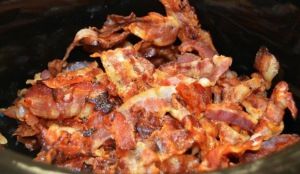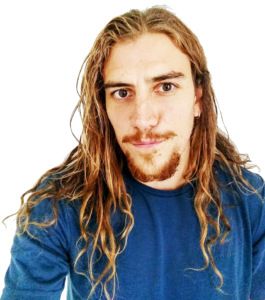Opinion
Early Rejser: Beating the meat
Adam Wells
This article is more than 5 years old.

“Sorry Peppa Pig, but bacon butties is a price worth paying” (photo: Pixabay)
Denmark has a vegan party. And like the unappetising social event it sounds like, Veganerpartiet is unlikely to be affected by current restrictions on how many people can gather in one place.
Despite being few in number and short in the tooth, they don’t seem worried about biting off more than they can chew. But why do they think the medister-munching Danes will let go of their meat and support them?
High steaks
I wouldn’t have backed that horse when I moved here four years ago – and not because of a moral objection to equestrianism. Vegetarian options were nowhere to be found, and the few Danes who knew what ‘vegan’ meant associated it with a deficiency in masculinity or sanity.
There has been a global trend towards meat-free eating since, driven by a growing awareness of the environmental impact of animal agriculture and the nutritional merits of plant-based diets. And Denmark has reflected this, with a wave of vegetarian options, vegan eateries, and meat and dairy substitutes.
Veganerpartiet hope that exposing the underbelly of Denmark’s wickedly efficient meat production will swell this wave by influencing the consumer choices Danes make. Unfortunately, habits and emotions often override knowledge in decision making, especially when it comes to food. Just ask former minister for the environment, Jakob Elleman-Jensen. When Veganerpartiet founder Henrik Vindfelt asked him if the plight of piglets was on his agenda, he replied: “I really can’t express with words how much I love bacon.”
Loving bacon is understandable. As is the reluctance or inability to give up something you love, especially if you’ve had a taste for it since early childhood. The moral case I would make to non-vegans isn’t about their choice to consume animal products, but about denying their children the choice not to.
They fork you up
Some things are okay to impose on children too young to decide for themselves, like polio vaccines. Others, like circumcision, not so much. Giving up meat (pun intended) may be easier than growing a new foreskin, but with significant ethical and environmental costs involved, and no practical, nutritional or existential imperative, forcing children to develop habits they have to break and loves they have to shake, or else continuing to contribute to those costs, seems immoral to me.
It’s natural of course. If you’re aware of the downsides of animal agriculture but support it nonetheless through your consumer behaviour, then you’re likely to leave some inconvenient truths off the table when serving your kids meat and milk. But in protecting your children and your cognitive harmony, you’re doing more harm than good.
I’m not suggesting you sing about Old McDonald tossing off his prize hog, or other less pleasant parts of pig farming. All you have to do is tell them what pork is and where it comes from, and that the pigs don’t enjoy the process. Kids love animals, and I suspect that, unprompted, they would never ask to eat a dead one.
Saving our bacon
Regardless, asking people to be ethical consumers is a losing strategy. It may lead to individual vindication, but not systemic change.
Hopefully Veganerpartiet’s confidence isn’t misplaced, because systemic change begins with policy. They’ve amassed enough signatures to be eligible to compete for parliamentary seats at the next election. Win a few and they could find themselves influencing policy should the PM’s party find themselves a few seats short of a majority.
In a world of climate crises, zoonotic diseases and industrial-scale atrocities, we need governments that view policy through the lens of environmentalism, ecology and compassion, not profitability, partisan politics and a penchant for bacon.

About
Adam Wells
Adam is a nanny, a multi-sports fanatic and a budding ultra runner. He was faster off the mark than his fellow Brits, quitting England for Denmark moments before they voted to stay out of Europe. When he isn’t caring for kids, screaming at a screen or tearing up his feet, he writes unsettling poetry and prose.










































